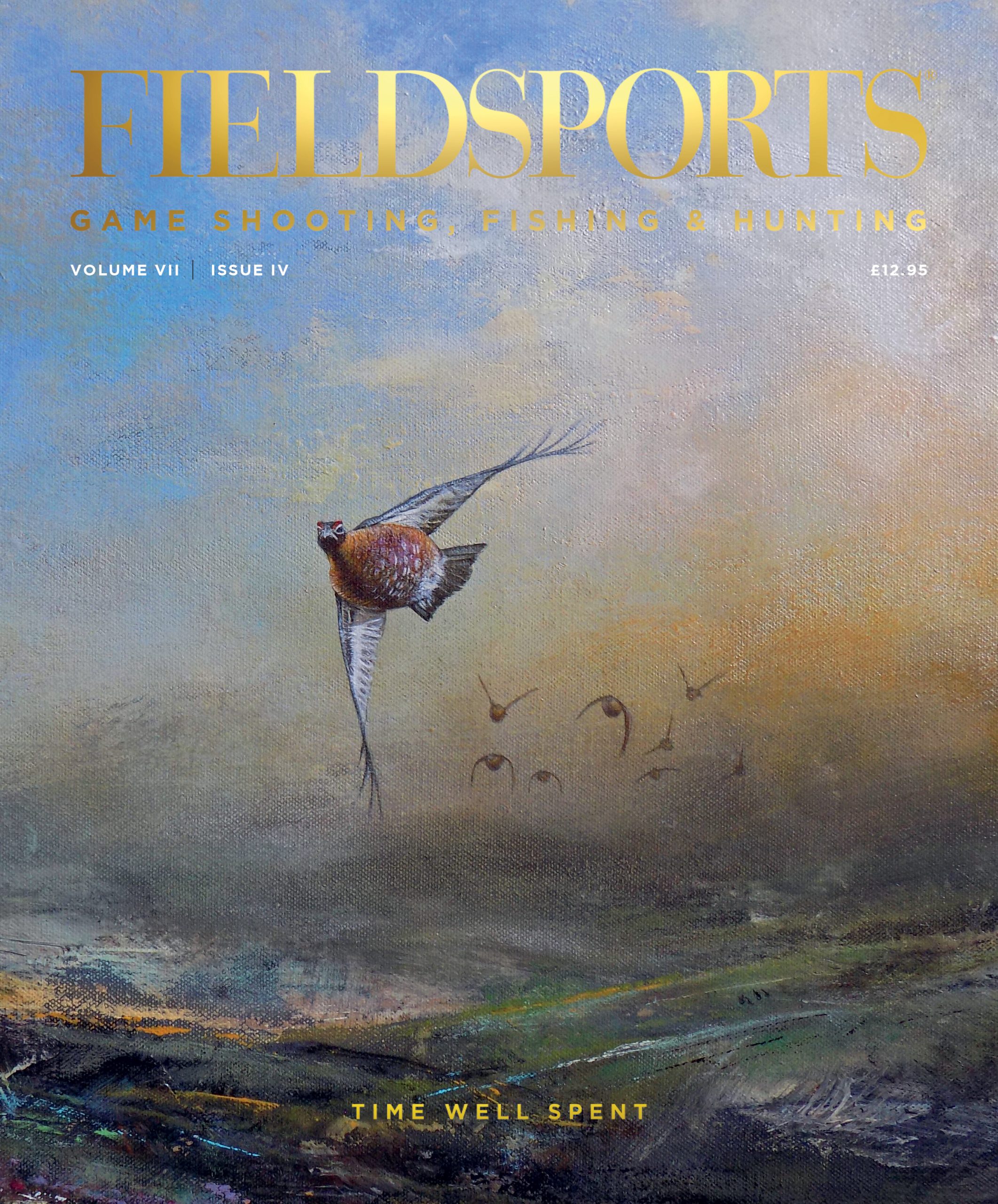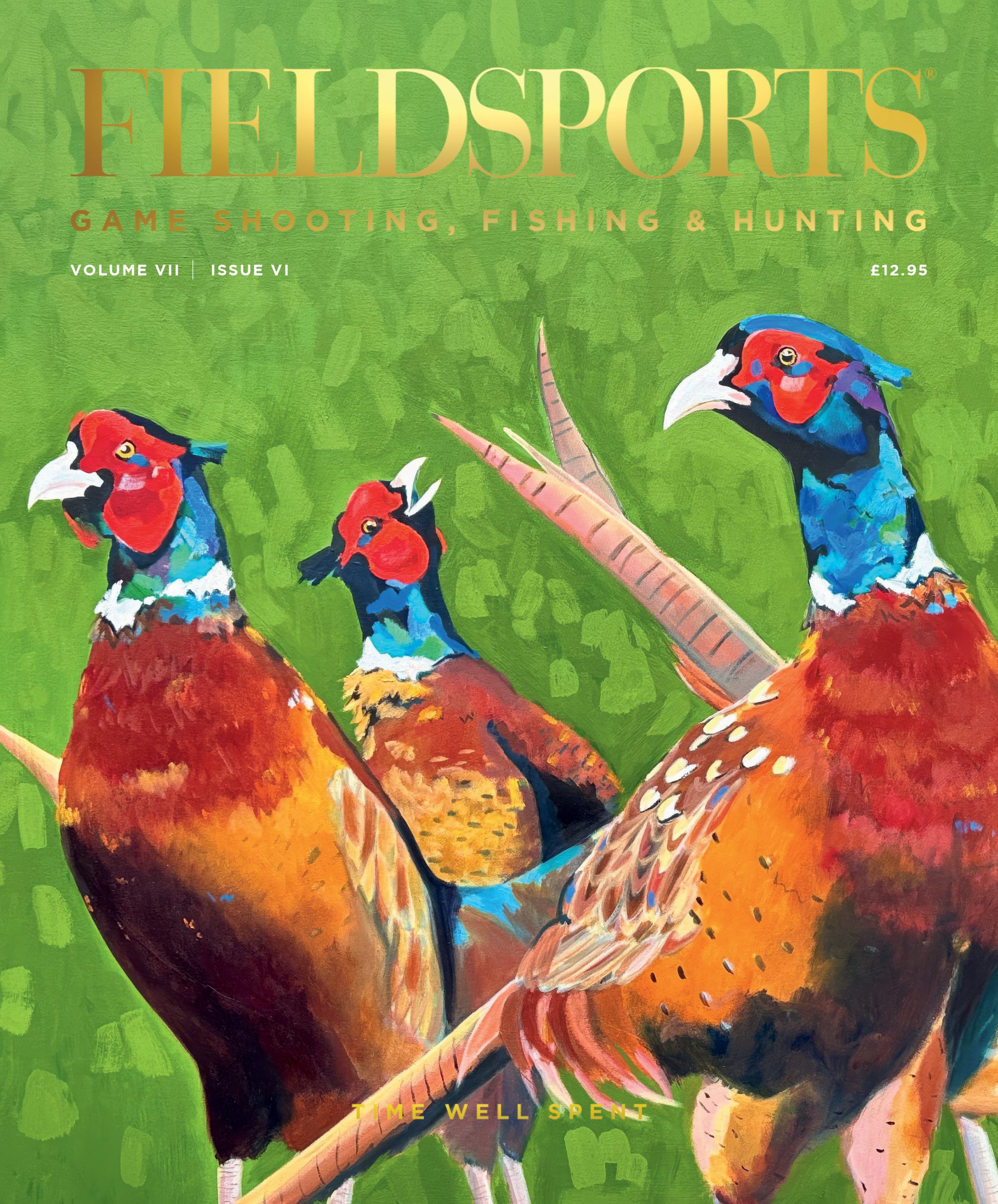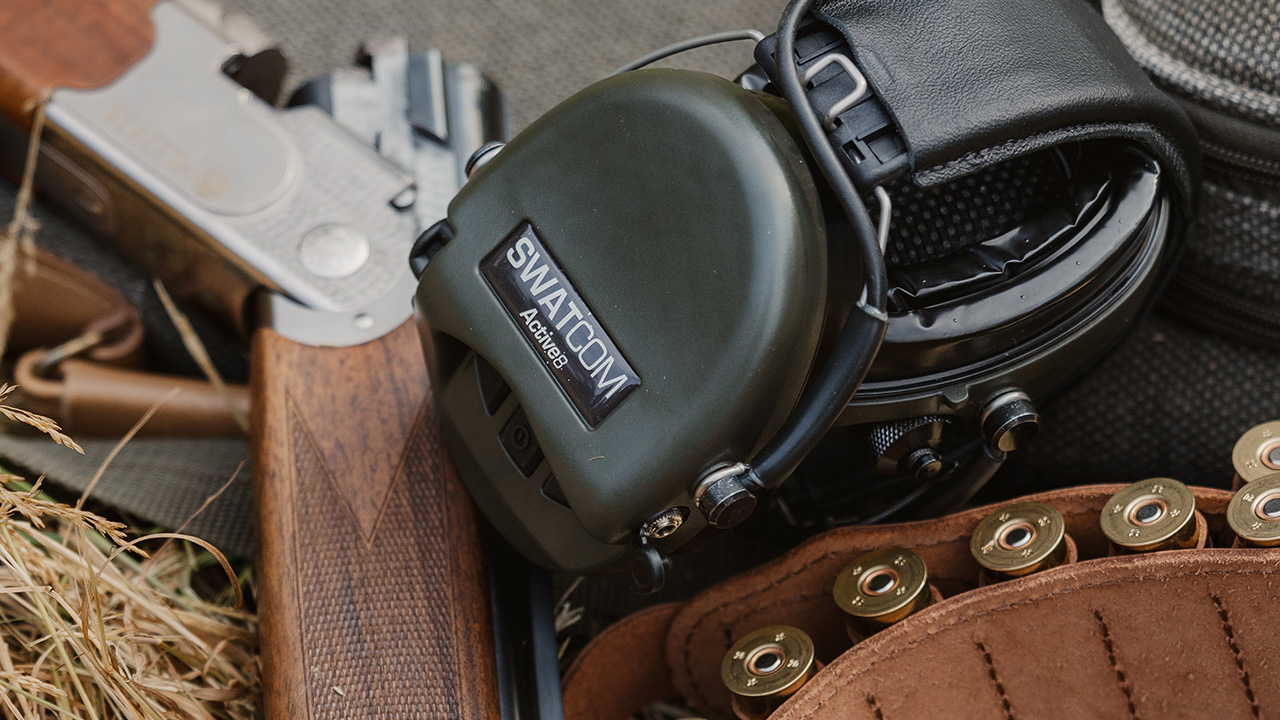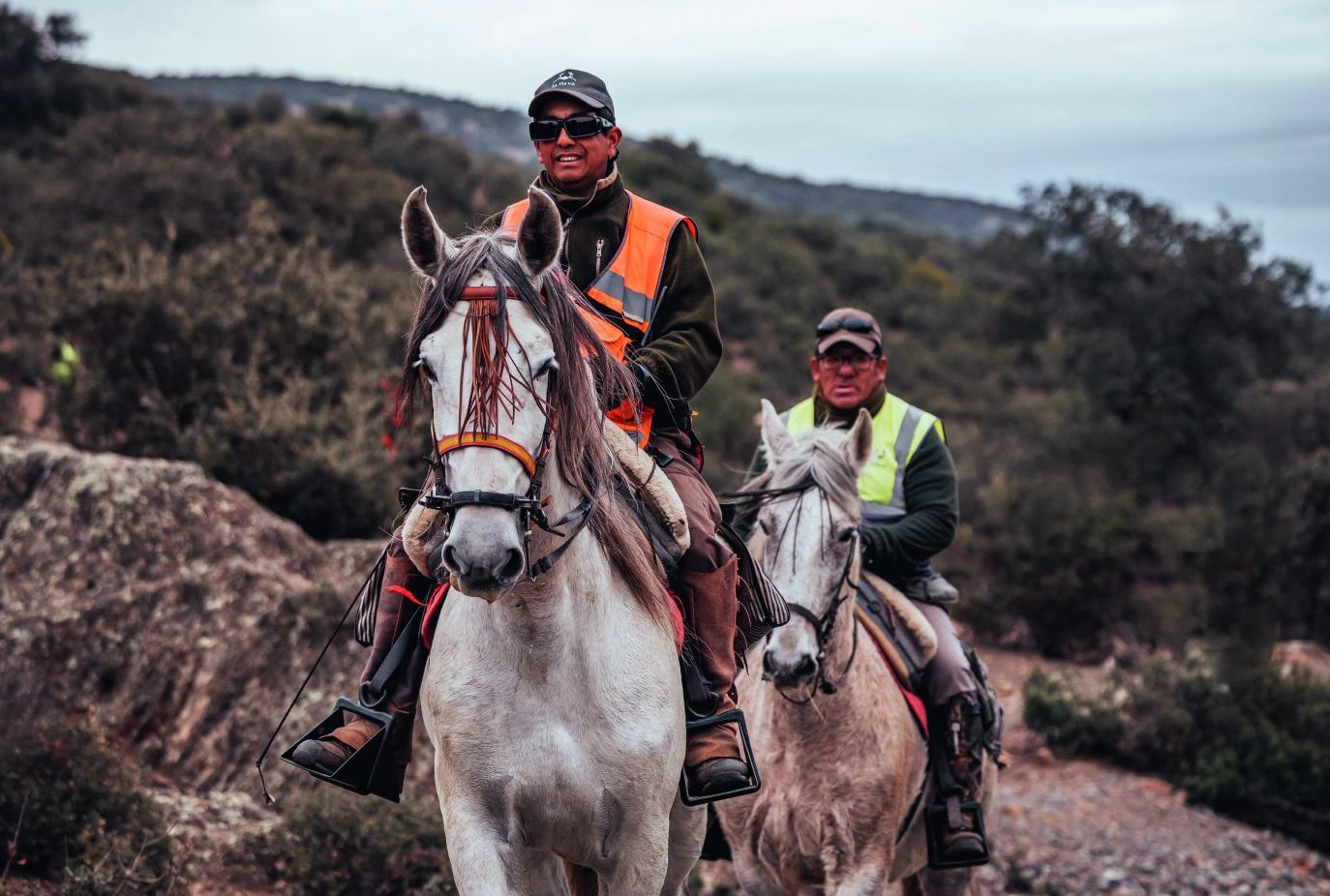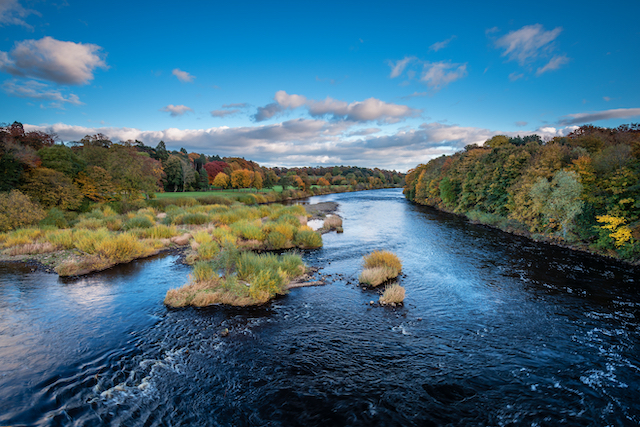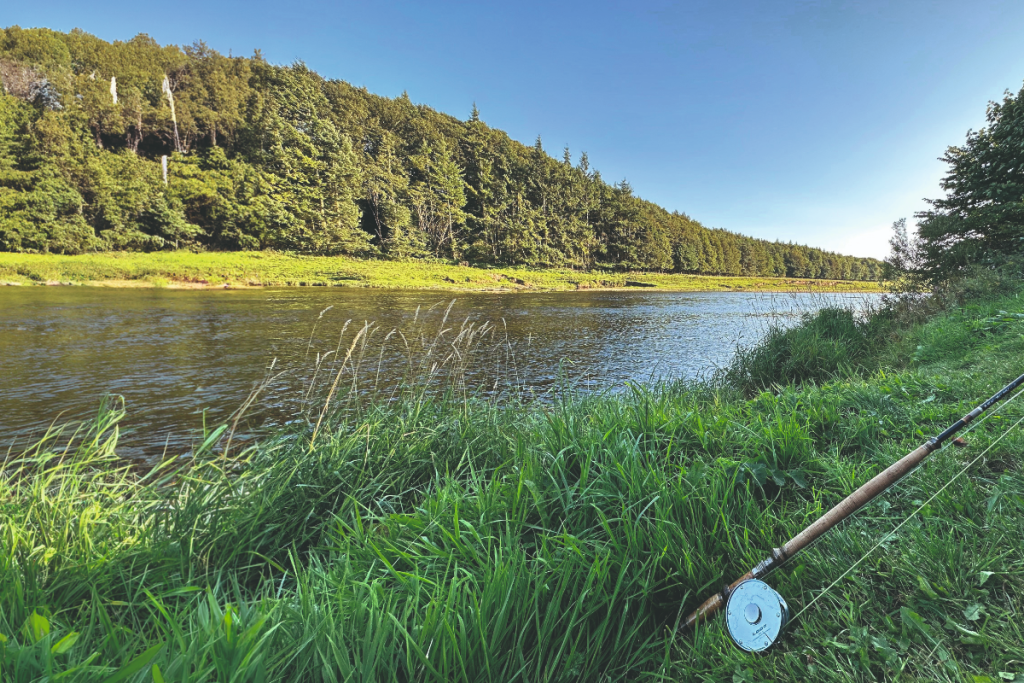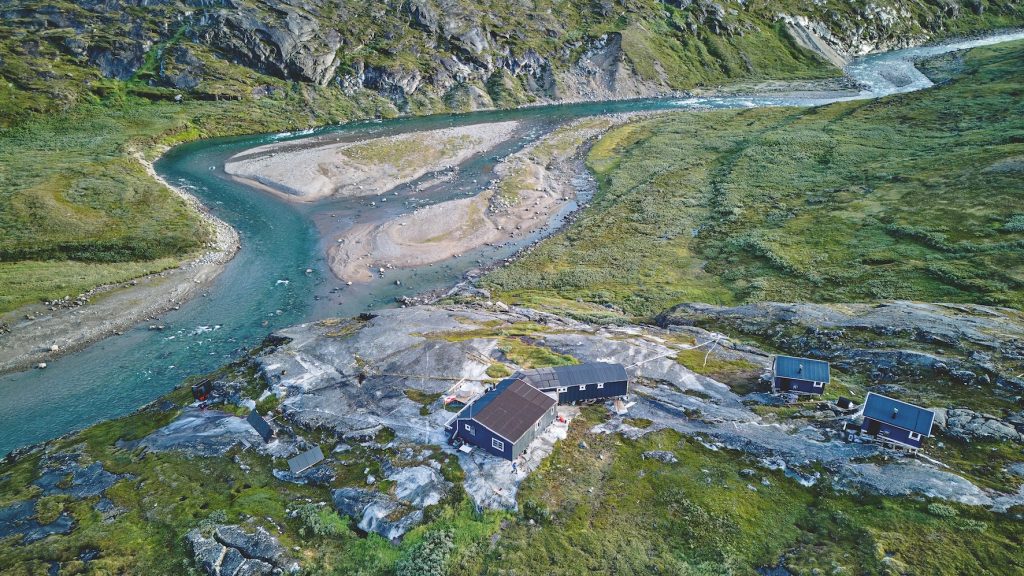The countdown is on for The British Shooting Show – book tickets online today and save on gate price!
Summer water
We’ve reached that seminal moment in the year when fishing gets really interesting.
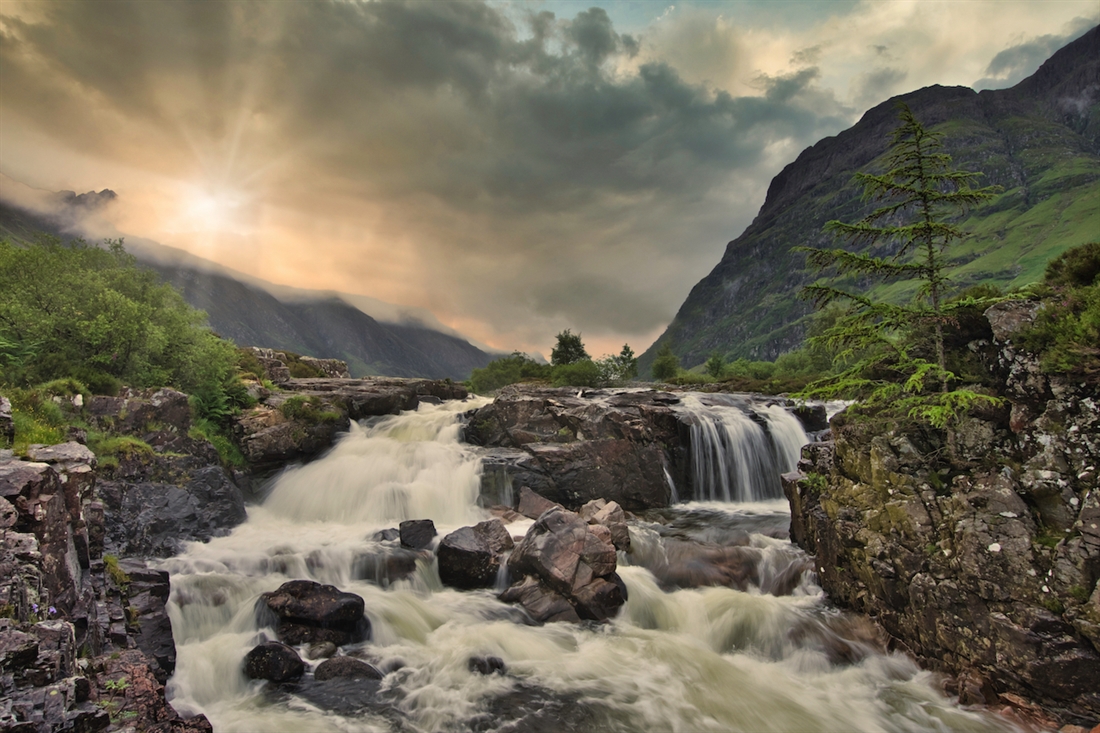
There is a moment in the year, when the nights draw out proper, that the verdant bright new green of spring, mixed with blossom, wild garlic, last year’s pine cones, needles and twigs, old wild raspberry canes and brown earth as yet uncovered by nettles, takes on the darker, more complete green hues of a British summer. This is the seminal moment when one’s mind turns to summer water. The old Georgian cupboard in my room, as good as the day it was made, has shelves in the upper half and drawers below, and houses every sort of fishing tackle you can think of, from thousands of flies, salmon and trout, even a few bonefish and ‘cuda flies, to endless fly boxes, wader repair glue, polaroid specs, rod car clamps and old lines wrapped around bits of wood. Tiny Butchers and Spiders, Muddlers and Bibios to Cascades, tubes and Sunray Shadows of every possible size and colour. In the drawers are trout reels and salmon reels, spinning reels, old Devon minnows and Blair spoons never used for years and endless rolls of Maxima nylon cast. All of it in an appalling mess, jumbled up, not in order, a place where if you reach for anything, a loose treble inevitably embeds itself in a finger. In the tall cupboard next door are rods, from 8’ to 15’, and every inch in between, old rods, broken rods, new rods, spare rods, trout, sea trout, salmon, big river, small river, the full Monty of a collection of a lifetime of fishing and the happy coincidence of living near the House of Hardy factory and a family discount.
The sea trout don’t really come into the Tweed in numbers until May, though a few will trickle in the months before, through the lower beats and on up the main stem or the principle sea trout tributary, the River Till. The evenings, generally, are too cold until the end of May, even June, to make an after supper cast worthwhile, but a late spring or mid-summer spate will nicely bring both salmon and sea trout into the Northumbrian and Border rivers. During lockdown last year my friend Bob, who has fished on and looked after a lovely beat called Milne Graden on the lower Tweed for years, asked if I would like to fish on the evening that the restrictions on fishing in Scotland were lifted. Can you imagine, 9pm on a late May evening, not a soul about, virgin water, untouched for three months. I could hardly contain myself, expecting the river to be jam packed with free taking sea trout. My first cast caught a brownie about the size of my thumb and I nearly fell in with joy and freedom and excitement. And that was it. Never saw another fin. Yet out of sight around the corner my mate caught one, lost two and saw endless sea trout rising to dry flies. It was, is and always will be pure magic just wading out quietly midstream, casting a fly and feeling the weight of cool water at one’s hip, just occasionally venturing a thought to on high; “Lord suffer me to catch a fish” as the prayer goes, “so big that even I, in talking of it afterwards, should have no need to lie”. The very next week, same place, my fly was hit by a fish right on the hang above the breaking water of the cauld. Rod bent double, line streaking this way and that, uncontrollable runs around the pool and somersaulting tail walks by what I thought was a salmon, all the while praying it wouldn’t break downstream over the broken gush. Happily, round the corner in the gloaming emerged said Bob to find me trying to net the fish while being significantly hampered by a little black spaniel and a big orange labrador. With a deft stroke and quite strong invective on seeing the fish up close, Bob netted a double digit sea trout, by far the biggest I have come across, and my little prayer above was answered.
The highlight of the fishing year would be a trip to Scotland for a few days to fish a tumbling Sutherland or Caithness stream. The river Shin that flows into the Kyle of Sutherland is but a few miles long from where it empties out of Loch Shin, cascading dark water through a deep chasm of birch and alder, heather and bilberry, the river bed cut deep into the rock. It is barely wider than two rod lengths, with waterfalls and pots, huge boulders, and an ancient path for fisherman carved into the cliffs. Tourists gather above the great Falls of Shin and marvel at the jumping salmon while twice a day the Inverness train clatters along the line way above you. The Shin can be magical one day, dour the next, as hydro’d rivers can be, and the fish can be very dour too. It is an intense experience, as your fly swims barely five or ten metres from your rod tip, your focus must be complete, your feet perched precariously on a damp rock with the top struck off, or behind a boulder dynamited into position by a Victorian pioneer. In warm weather it becomes a cauldron of heat, even a midge infested Hades, and combined with a hangover can be challenging. A big orange fly stands out a mile in the black peaty water as you swim it through every seam and fold of the river, your heart beating a tattoo as it passes a likely lie. Once in a while, if the stars are aligned – it might not be for a year or two, or several times on the same day – on your first, second or hundredth cast, out of the depths at the speed of a Polaris missile, a salmon comes out of the deep, mouth open, showing a wide silver flank and turns on your fly. It all happens very quickly, a heart-stopping moment, the thrill and appalling anxiety when you lift the rod, your line tightens, the rod bends and you are into a big Atlantic salmon, fresh off the tide, perhaps even no more than 20 feet up river from salt water, and generally in no mood to be landed. Legend has it, back in the day when fish were truly abundant, because the Shin was fast and deep and inaccessible from pool to pool, that if a large salmon was hooked, (and the river is and was famous for big fish) the fishermen would simply cut the line as the chances of landing it were virtually nil, and it was a waste of good fishing time! Only recently my host Robbie’s daughter hooked and played a huge fish for nearly two hours, thought to be over 40lbs, but at the last minute, when almost played out, it rolled and the hook simply popped out and the great fish sank out of sight. Ona was apparently quite sanguine and measured in her loss. I would, as her father was, have been inconsolable for a decade or more!
Or the River Oykel, dancing gravelly runs, deep rocky pools, fast water, slow water, shallow water and deep. A little but key tributary called the Enig, where once the midges were so bad that I landed a fish without giving one click off the reel, hand lined in in maybe 40 seconds, onto the bank, hook out, safely returned, hands, eyes, mouth black with the little biters swarming. Never forgotten my head net and jungle juice again. The river needs fresh water to bring the salmon in from the Kyle, which is really a long, rather forbidding and mysterious tidal fjord from the North Sea, but when there is three feet on the gauge after rain in the west, it is one of the most exciting places in the world to be. Pods of grilse crashing into the pools, hanging on the treacly glides having run the rapids below, or making for the soda water at the head of the pool on their journey upstream. I once, in perfect conditions, fit for a duffer like me, caught a poke full of grilse before breakfast. I was then banished to the Shin, where more skill and application is required (hence no further fish for me that day), to give the others in our party a good go or… was it just in case I might threaten, in the face of far superior skill, my genial’s personal best, set a couple of weeks before?
Or the Berridale, or the Borgie, the Naver… while the romantic allure of a Highland river beats just about all, the local Northumbrian streams make up the greater part of my fishing life. The North Tyne is home water really, although it is an hour away, water the colour of molasses, a knobbly wade in extremis, but far from the madding crowd, an old log cabin, a beautiful oak wood and glorious fly water. A day trip for sure, sandwich from the Co-op in Bellingham or a sausage bun from George the Butcher. There can be a run of salmon in June and July and greater numbers from August onwards into October, and the sea trout come in late June, and even take a fly in bright sunlight as the water is so dark and peaty. It is a very special place, not least because I know it so well, but because the Tyne is a story of a successful comeback, the great river having been more or less devoid of migratory fish for most of the 20th century. While the fate of Atlantic salmon across this part of the northern hemisphere hangs in the balance, with populations a shadow of what they once were, at least the Tyne is holding up for now.
One could be forgiven for imagining the summer months leaving a low river, on its bones, where only an odd potted fish hangs out as a resident from the spring. ‘Summer water’, however, describes fresh, cool, Champagne bubbly water, breathing new life, new oxygen and new possibilities for both fish and fishermen. It is when, maybe after months of cold, or drought, or heat or all three, there is a nice day or two of gentle, warm rain, the river comes alive again, sparkling, the colour of a pale Amontillado sherry, with a palpable excitement, woody and watery smells and sounds, insect hatches. Not a threatening flood, or a constant back end lift and fall of river height as successive Atlantic weather systems pass through, and it is always west or south westerly. One might go fishing a dozen times and never have a bite, or go through a highly fraught period of losing every fish one is lucky enough to hook. Lockdown summer was notable in this regard, the string of losses still with me one year on, questioning my ability. Plenty of fishing opportunity, no punters fishing the local waters, eight salmon hooked in May and early June, none landed, culminating in a chance encounter with a Till sea trout, mid-afternoon, summer water, that sucked in my fly, sulked for ten seconds and then tore every scrap of line downstream, the reel literally shrieking, stopping with barely a yard left. Slowly but surely I retrieved line, got him back to within 20 yards, at which the skinhead of the stream simply slapped his tail and broke my shredded taper. My Dutch friend and I looked at each other not knowing quite what had happened. It was probably a five or six pounder, but in the telling it got to at least 20 plus!
Perhaps the most thrilling moment of summer water last year was when a grilse rose to my little hitch fly, way up a glen in Caithness, 11 times in 11 casts, no further away than the tip of my 9’ rod, and took on the 12th. Or was it a little grilse in late August, caught before breakfast up another glen in Angus before a special grouse day on a hallowed hill, or the first salmon I had ever caught below Coldstream bridge on a beat so far down river it still feels the kiss of the tide. That is just it – every moment on a river of any description is special, fish or no fish, clean air, solitude, companions, riverside picnic, carpaccio and sun dried tomatoes. My sadness is, and will be for ever more, that Dave, my old and special friend and fishing companion, who came to the Spey for 40 odd years, is no longer with us, taken long before his time. We landed each other’s fish, talked utter rubbish, took the piss from dawn til dusk, smoked cigarettes and danced on the riverbank to music blaring from his Mini Metro. So this one is for Dave, with whom we all shared a million special moments.
Related Articles
Get the latest news delivered direct to your door
Subscribe to Fieldsports Journal
Elevate your experience in the field with a subscription to Fieldsports Journal, the premium publication for passionate country sports enthusiasts. This bi-monthly journal delivers unparalleled coverage of game shooting, fishing and big game across the UK and beyond.
Each issue offers a stunning collection of in-depth features, expert opinions and world-class photography, all presented in a timeless yet contemporary design.
Save 10% on shop price when you subscribe, with a choice of packages that work for you. Choose from Print & Digital or Digital only with each journal delivered directly to your door or via the app every other month, plus access to past issues with the digital back issue library.
